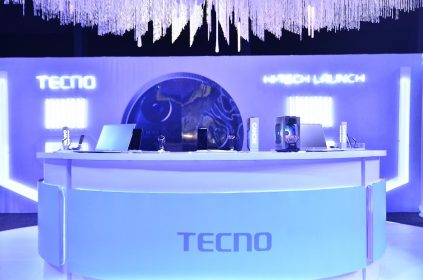How To Register Your Crypto Assets In Nigeria Under SEC’s New Guidelines is a report that is important at this moment.
This is because, digital assets such as cryptocurrencies are not legally transactable via financial institutions in Nigeria.
The Central Bank of Nigeria has banned deposit money banks and other financial institutions, as well as prohibits the trading of crypto in the country via deposit money banks.
However, the recent guidelines by the SEC which defines and, in a way, legalises crypto currencies. also shines hope on the sector in Nigeria.
SEC published new rules relating to the issuance, exchange and custody of digital assets in the country.
Note that “Digital assets” encompasses all types of crypto assets including NFTs and other blockchain-based assets.
Although the CBN has not given a nod to crypto trading in the country, investors entities who may want to float a crypto offering for Nigerians can take these steps to register.
SEC’s new rules govern the issuing of digital assets as securities.
ALSO READ: Cryptocurrencies See Hope In Nigeria As SEC Issues New Guidelines Legalising Digital Assets
It also include rules on the registration requirements for digital assets offering platforms (DAOPs).
Similarly, the regulations also include Virtual asset service providers (VASPs) and digital assets exchanges .
Requirements you should know about:
Although the new SEC rules is in sharp contrast to the stance by CBN, the guidelines, however, require token issuance platforms and exchanges to maintain trust accounts with receiving banks.
If you want to provide any kind of crypto products and services in Nigeria or to Nigerians, you must secure a virtual asset service provider (VASP) license.
If you want to offer services as a cryptocurrency exchange like Binance or Luno, then you will also obtain a relevant category licenses.
One of the licenses you must obtain from SEC is a digital asset exchange license. This is in addition to the VASP permit.
Also, you must obtain self-declared risk acknowledgment forms from users.
Likewise, you will need to issue a disclaimer that losses from investments aren’t covered by any protection fund.
As a VASP holder, you must also employ anti-money laundering and combating the financing of terrorism (AML/CFT) standards.
Note that the permit you obtain from SEC gives the commission access to your records.
Also, if you want to register as an Exchange, you will need to submit weekly and monthly trading information.
You will also submit quarterly and annual financial and compliance reports to SEC.
You will not also facilitate the trading of any digital asset as an Exchange in Nigeria, unless SEC has first issued a “no objection” about such asset.
Moreover, you will need to submit applications for every asset you intend to list as an exchange.
In the Application, make sure it proves that you have enough information about the project and its associated risks.
SEC also expects the Exchange to conduct real-time market surveillance to ensure investments remain okay with the requirements.
How To Register:
Visit SEC’s portal here to see steps on how to register.
Token issuance:
If you or an entity wants to issue tokens or digital currencies like cryptos or Non-Fungible Tokens (NFTs), then you must adhere to these guidelines:
If you want to offer Initial Coin Offering (ICO), like NFTs, you must register the project with SEC.
The registration must define the intentions for conducting such ICO in Nigeria.
Equally, you will file for an an assessment form and submitting a detailed copy of a whitepaper about it.
The whitepaper must provide the “complete and current information regarding the initial digital asset offering projects, business plan and feasibility study.”
SEC defines a Whitepaper as follows:
“White Paper is a document that states the technology behind a project, including a detailed description of the system architecture and interaction with the users, description of the project and use of proceeds, information on the market capitalization, anticipated growth, other technical details and the team and advisors behind the project.”
After filing for this, you will wait for SEC review it to make a determination.
According to SEC, “The Commission shall] review same within 30 days from receipt to determine whether the digital asset proposed to be offered, constitutes a ‘security’ under the Investment and Securities Act 2007.”
If the Commission considers the proposed token a security, it will notify you within five days.
Note that you, as the issuer, will have to comply with Nigeria’s securities laws if SEC gives a nod to your project.
Also, if you are conducting a crowdfund or go-fund-me kind of projects, you are exempted from these registration requirements.
Meanwhile, in conducting such kinds of token issuance projects, you will be able to raise not more than NGN 10 billion.
Based on the official exchange rate, that amount is roughly $24.1 million.
However, SEC may update this figure as it deems fit.
How To register for a Token Issuance:
Visit SEC’s portal here to see steps on how to register.
Requirements For Operating A Digital Assets Offering Platform (DAOP):
Example of a DAOP is ICO.
Meanwhile, a digital assets offering platform (DAOP) refers to portals where issuers can launch an initial digital asset offering.
So, SEC has outlined the following obligations for operating a DAOP in Nigeria:
1: A DAOP operator must conduct due diligence on any project looking to offer digital assets through its platform.
It must also exercise its own judgment on whether the project is fit to raise funds.
2: A DAOP is obliged to provide investors with updated information about projects it lists.
3: The platform should also monitor the usage of funds by projects to ensure that they’re used for purposes stated in their respective whitepapers.
SEC also said that an applicant shall ensure that the application submitted is accompanied with the prescribed fees:
- Filing/Application Fee – N100,000 (One Hundred Thousand Naira only)
- Processing Fee – N300,000 (Three Hundred Thousand Naira only)
iii. Registration fee – N30,000,000 (Thirty Million Naira only)
- Sponsored Individuals Fee – N100,000 (One Hundred Thousand Naira only)
In other words, to apply and register as a DAOP, the new rules say thus:
You must pay a filing fee equivalent to $241, a processing fee of $724, and a registration fee of $72,430.



















 and then
and then